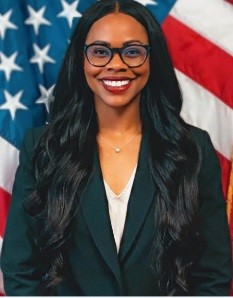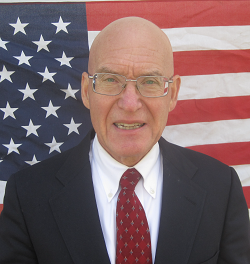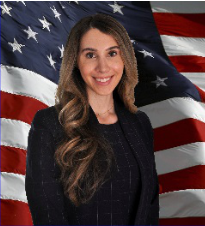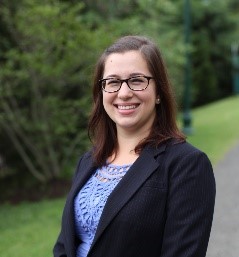The IRS offers a wealth of workplace flexibilities, work-life programs, and other exceptional benefits to help you balance career and home. Some of the many programs available to you include:
Telework
As an IRS employee, you can discuss this work opportunity with your manager to determine if you will be permitted to regularly conduct your job duties at home or another work site that is more convenient to you. The opportunity to participate in this program depends on your job position and the type of work assignments involved.
Flexible Work Schedules
Need to set your work schedule around other priorities in your life? Many of our positions allow for a flexible work schedule, with several options to choose from:
- Flexitour: Through this option, you’ll work an 8-hour day, setting your own start and end times (within a given range of hours). You can accumulate up to 24 “credit” hours (above the 8 regular hours per day) to use for time off, without having to use your annual leave time.
- Compressed Work Schedules: Available in most locations, these options offer unique workweeks. Please note: This benefit is only available in some offices, after completing one year of training.
- 4/10 Option: Work four 10-hour days per week. You’ll receive two days off every two-week pay period.
- 5/4/9 Option: Work eight 9-hour days and one 8-hour day. You’ll receive one day off every two week per pay period.
Child Care Subsidy Program
The Child Care Subsidy program is offered to eligible IRS employees to reduce the amount they pay for childcare by paying subsidies directly to childcare providers. The program is designed to encourage eligible employees and their families to use quality child care services by offsetting a portion of their costs by up to $5,000 per year.
Employee Assistance Program
Wellness is the state of being physically, mentally, and emotionally healthy. Maintaining wellness is an ongoing process because everything you do, and experience affects your well-being. Our Employee Assistance Program (EAP) has many resources to help you improve your well-being and quality of life. Therefore, we make free employee assistance services available to all of our employees and their immediate family members around the clock (24 x 7), and provide free information and resources for legal, financial, eldercare, childcare, and other issues employees or their family members may face.
Public Service Loan Forgiveness
The Public Service Loan Forgiveness program is another benefit offered to eligible IRS employees to help with student loan debt. Under this program, borrowers may qualify for forgiveness of their remaining loan balances after they make 120 qualifying payments and work full-time for the IRS. For more information about the program, visit the Federal Student Aid website.
Student Load Repayment Program
The Student Loan Repayment Program is offered to eligible IRS employees to reduce the amount they pay for student loans. The program is designed for highly qualified IRS employees who occupy hard-to-fill positions by helping them repay all or a portion of their federally-insured qualifying student loans. Student loan repayments may be up to $10,000 per year, and up to $60,000 in total for any one employee.
Transportation Subsidy
We’ll help you pay for your commuting costs to and from work. The IRS Public Transportation Subsidy Program (PTSP) was established to encourage employees to use public transportation to help reduce air pollution, reduce traffic congestion, and conserve energy. The maximum benefit is currently $315 per month. These benefits are not taxable and are not included on Form W-2.
Federal Academic Alliance
OPM partners with colleges and universities as a part of the continuing efforts to provide higher educational opportunities to the federal workforce by providing current federal employees with the opportunity to pursue post-secondary education at reduced tuition rates. Federal employees can take advantage of this benefit to pursue or enhance their higher academic education at their own pace. Some agreements extend the benefits to spouses and legal dependents. See Federal Academic Alliance to learn more.
Health Services
Because we recognize how important it is to maintain a healthy and fit federal workforce, we offer a variety of services such as flu shots, cholesterol and blood pressure screening, smoking cessation programs, and wellness workshops. On-site health units are in many of our locations for IRS employee use at no cost.
Fitness Centers
Space in federal buildings is provided for exercise, and some IRS locations have on-site workout facilities in 9 fitness centers nationwide. There are no membership fees in IRS-only fitness centers; but other fitness centers located in GSA shared federal buildings may require a membership fee.
Child Care Centers
Balancing the needs of work and family life can be challenging, and we know that many of our employees have childcare needs. To help alleviate this burden, the IRS works in partnership with the General Services Administration (GSA) to provide on-site childcare facilities. GSA manages these centers in 31 states, the District of Columbia, and Puerto Rico — and 6 of them are co-located with IRS facilities. Each center is independently operated, and services and fees vary from center to center. In addition, our Employee Assistance Program can also provide you with free referral information to assist you in finding care for children, grandchildren, and eldercare.
Lactation Program
IRS employees have designated, private space to express their milk. This space can be a health clinic or conference room with a table, chair, electrical outlet, and a small refrigerator.


















